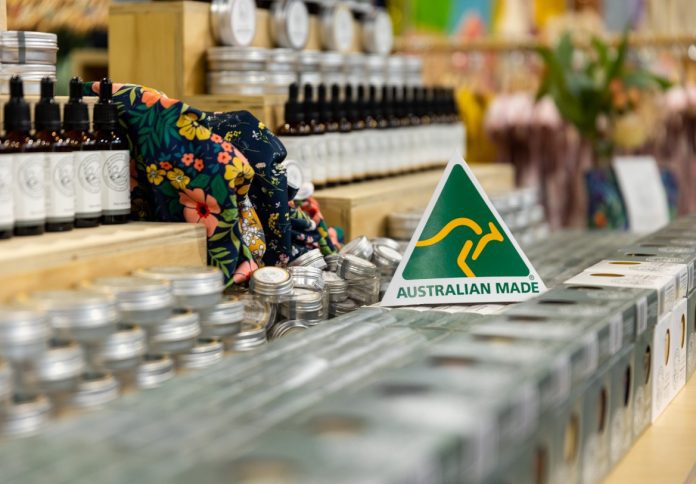
A new report commissioned by Australian Made Campaign Ltd (AMCL) has revealed a strong consumer preference for Australian-made products, with 73 per cent of Australians willing to purchase more locally made goods to reduce reliance on imports.
The research, conducted by Roy Morgan ahead of Australian Made Week, also found that 72 per cent of respondents would be willing to pay more for products made in Australia.
The study highlights an increasing intent among Australians to support local industry, with 67 per cent of those surveyed planning to buy more Australian-made products in the coming year. The findings come as the nation prepares for Australian Made Week, which runs from 19 to 25 May.
Ben Lazzaro, chief executive of Australian Made, said the results reflect growing awareness of the importance of domestic manufacturing, especially amid ongoing global economic volatility.
“Now is the time for Aussies to help Aussies,” Lazzaro said. “When we support our local makers, growers, farmers, and manufacturers, we not only get products made to Australia’s high standards, we can also assist local industries that may be facing reduced exports.”
Roy Morgan CEO Michele Levine noted that cost-of-living pressures remain a significant factor for consumers but suggested that even small shifts in spending can have a national impact.
“Cost of living pressures may challenge some people to purchase Australian-made, especially for everyday items,” she said. “But our research shows if each household spent an extra $10 weekly on Australian-made products, an additional $5.6 billion would be generated and could create almost 10,000 new jobs.”
The research also indicated that 84 per cent of Australians would be more likely to buy a product if they knew it was made in Australia, pointing to the value of clear country-of-origin branding.
“While global supply chains are shifting, this is a moment of opportunity for Australian brands to claim new space in both domestic and international markets,” Lazzaro added. “One of the best ways to do that is through country-of-origin branding.”
The Australian Made logo, a widely recognised symbol featuring a green and gold kangaroo, is currently used by around 4,500 businesses. Collectively, these businesses support approximately 40,000 jobs and contribute about $8 billion in annual revenue.
Lazzaro encouraged manufacturers to take advantage of the exposure provided by Australian Made Week. “It’s never been more important for local manufacturers to market their products with prominent Australian Made branding and to take the opportunity to be part of Australian Made Week in May,” he said.
Olympic gold medallist Ariarne Titmus OAM has been announced as the ambassador for this year’s Australian Made Week.
“As a proud Aussie, I’m super excited to fly the flag for Australian Made goods,” Titmus said. “I’d love everyone to join me on Team Australian Made — because no matter what you’re buying, when you buy Australian Made, we all win.”
Additional findings from the research show that 50 per cent of respondents who are willing to pay more for local goods would pay up to 10 per cent more.
The data also points to demographic trends, with women (47%) and regional residents (48%) more likely to buy Australian-made products than men (39%).
Support for domestic manufacturing remains high, with 89 per cent of Australians believing more manufacturing should be done within the country. Meanwhile, recognition of the Australian Made logo is nearly universal, with 99 per cent of respondents familiar with it and 93 per cent expressing confidence that products bearing the logo are genuinely Australian.
More information about Australian Made Week is available at australianmadeweek.com.au, and details on applying to use the logo can be found at australianmade.com.au/apply.




















